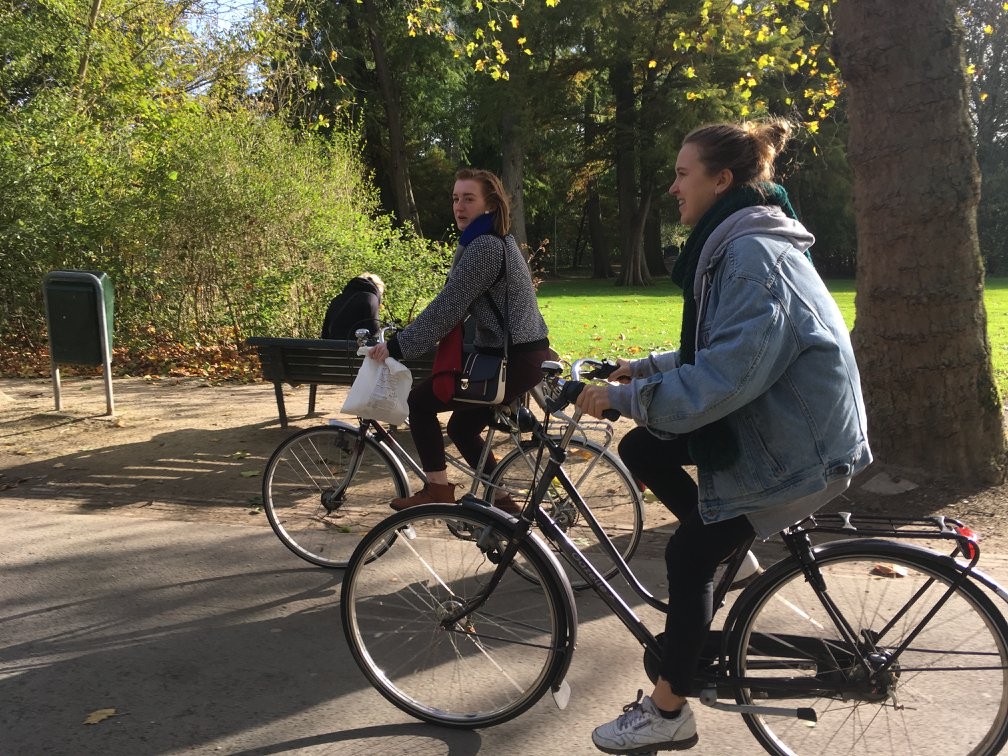The problem
When people discuss the problems that arise from carbon dioxide output, they compare other industries to the transport industry to demonstrate how bad they are. “Agricultural industry is the second biggest emitter of greenhouse gases after transport industry”. “Cows produce as much CO2 as cars”. It is the baseline of “bad”.
The BIG problem is, the transport industry is not a single issue problem with a single issue solution. Transport is essential in all aspects of life, and mode of transport is very dependent on personal factors. A family of seven aren’t going to fit into a Nissan Leaf. If we banned heavy freight highway trucks people wouldn’t eat.
The solution
The first thing we can do is to look at how much we can change our own transportation patterns; in some countries, this is easy, in others it's harder. Morgana and Jas are EXTREMELY fortunate to live in a country where there is an easy solution.
Cycling.
In Amsterdam, we can cycle everywhere we want. We go shopping by bike, we go to the beach by bike, we go to school and work by bike. Essentially, we live in a city built for bikes where cyclists sit atop the transportation hierarchy.
"But I don’t live in Amsterdam or Copenhagen, this is irrelevant to me."
Build it and they shall come.
Functional cycling facilities can be built in any dense, flat city or area. Short distances, little hills. Just because it hasn’t been built yet, doesn’t mean it shouldn’t. We live in democracies, we can lobby and pressure our local and national governments to build more extensive cycling infrastructure. It's good for everyone: we get fit, we don’t have to use our expensive cars, and the government's CO2 budgets dramatically decrease in the long run.
What happens if you live in a massive sprawl or rural area in which cycling daily would be impossible even if you were Bradley Wiggins?
Again, lobbying is important. Basically, we need to get over our need to own a personal car. Society needs to start dreaming about zero waste together.
Public Transport needs to be seen as the norm and not a back-up or prequel to getting a car. It should be the main event.
In the pipeworks are fleets of cars that will cater to entire cities. A constant uber-like service that would cut total car usage, traffic and emissions in cities by two thirds. Watch this eco-space.
Transport is the true reflection of the society we live in. We can change our attitude, transportation ways and future all at once.
Evaluation
WE LOVE CYCLING. We love it less when there is ice on the ground and it's -12, but we still love it all the same.

Benefits:
1. No one says anything if your makeup has gone everywhere, or if your hair is wet: you just cycled
2. You can excuse wearing super comfy clothing all the time because you have to cycle, duh
3. You can let yourself off exercising (sometimes) because you cycle an hour a day. The calories have to be taking some kind of a hit
4. You’re not reliant on bus times or someone else’s schedule to get places. You’re strong. You’re independent. You’re free.
Basically, we love a good cycle we do, and we could wax lyrical about bikes all day long. This wasn’t so much a (zero-waste) challenge for us because cycling is luckily already a part of our lives; but, we wanted to raise awareness to the wasteful ways of the transport sector. The Ginger and the Vegan say yay to cycling. Ride or die.





